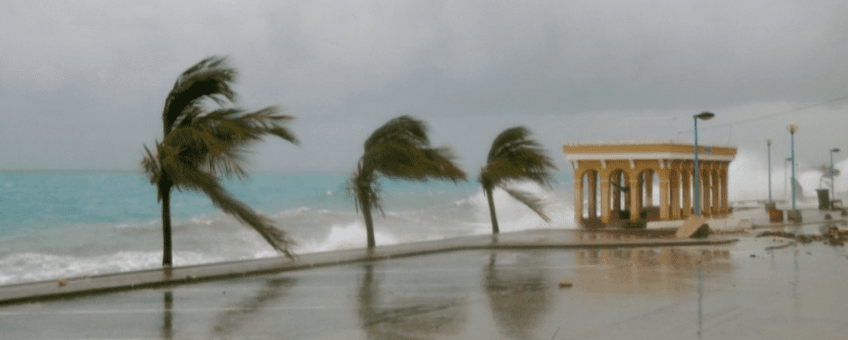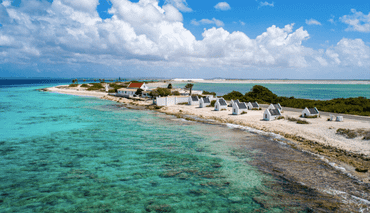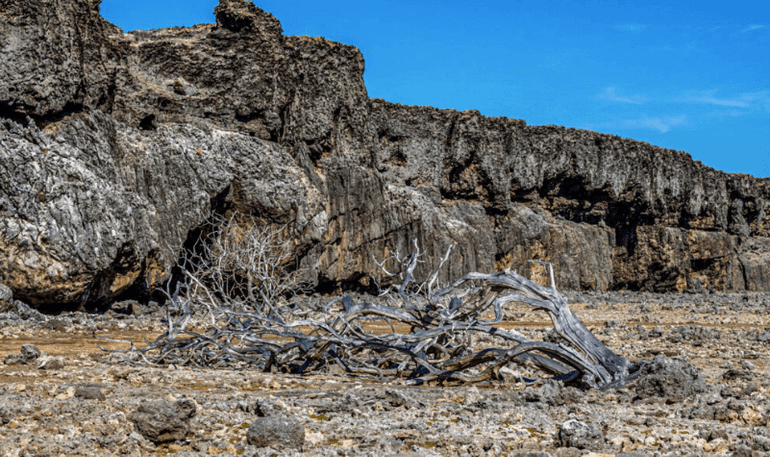
Bonairian households not resilient to climate change – action is highly needed
Dutch Caribbean Nature Alliance (DCNA)Climate change and vulnerabilities
 Global warming causes big changes in climate. These changes lead to climate vulnerabilities, which are expected to occur more often or become more intense in the future. Examples on Bonaire are tropical storms, hurricanes, floods, and droughts. These can destroy Bonaire’s nature, like its coral reefs and mangroves. They can also harm Bonaire’s citizens. For example, extreme weather can cause injuries or sickness, or destroy vital infrastructure and buildings. Also, it can harm the economy and decrease household incomes. Small islands, such as Bonaire and the other Dutch Caribbean Islands, are especially at risk. They are also expected to be most affected by the impacts of climate change. Therefore, it is important to make sure these islands and their households are resilient to climate change vulnerabilities.
Global warming causes big changes in climate. These changes lead to climate vulnerabilities, which are expected to occur more often or become more intense in the future. Examples on Bonaire are tropical storms, hurricanes, floods, and droughts. These can destroy Bonaire’s nature, like its coral reefs and mangroves. They can also harm Bonaire’s citizens. For example, extreme weather can cause injuries or sickness, or destroy vital infrastructure and buildings. Also, it can harm the economy and decrease household incomes. Small islands, such as Bonaire and the other Dutch Caribbean Islands, are especially at risk. They are also expected to be most affected by the impacts of climate change. Therefore, it is important to make sure these islands and their households are resilient to climate change vulnerabilities.
Research and results
This is why Nina Zander, DCNA’s research intern and Master’s student of the University of Utrecht, has investigated how resilient households on Bonaire are towards climate change vulnerabilities. The results of her research suggest that there is still a lot in the way for households to be climate resilient. For example, many households are not insured for damage caused by climate change vulnerabilities. Or they do not have enough savings to recover from such damage. Also, households often do not really know how climate change can impact them or how they can prepare for it. Poverty is another barrier. The results of this study also suggest that some household types, such as big households and households with low education levels, are inclined to be less resilient.

What now?
Action to increase climate resilience is thus highly needed. Institutions like governments can initiate such action. For example, they can create an action plan. Protecting and recovering Bonaire’s nature should be part of this. Recommendations are made by the DCNA for this in their Dutch Caribbean Climate Action Plan (pdf; 2,2 MB).
Bonaireans can also take steps, like making sure their insurance covers climate change damage. And by becoming familiar with Public Entity Bonaire’s disaster relief brochures. Also, make sure to stay updated on climate change impacts on nature by subscribing to DCNA’s free digital newsletter Bionews and by keeping an eye on DCNA’s social media channels.
More information
- Are you interested to learn more about this topic? You can find Nina’s thesis and the communication report in the Dutch Caribbean Biodiversity Database. You can also reach Nina through nina.p.zander@gmail.com
- A video summary of this report can be found on YouTube
Text: DCNA
Photo's: Casper Douma
